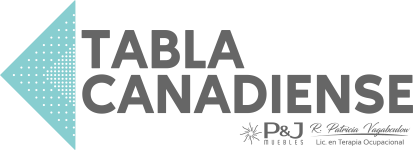Introduction
The ongoing cost of living crisis has emerged as a pivotal factor influencing consumer behaviour across various sectors, with the gambling industry experiencing particularly notable shifts. For industry analysts in Canada, understanding how economic pressures reshape gambling habits is critical for forecasting market trends, assessing risk, and formulating data-driven strategies. This article explores the multifaceted impact of rising living costs on online gambling and casino patronage, providing insights into behavioural adjustments and market responses within the Canadian gambling landscape.
Economic Pressures and Consumer Spending Patterns
Amid inflation and escalating expenses for essentials such as housing, food, and utilities, discretionary spending patterns have undergone significant revision. Many consumers are reducing discretionary expenditures or seeking cost-effective alternatives to maintain engagement in preferred leisure activities, including gambling. This dynamic has led to a complex behavioural response where players may decrease overall betting volumes, but simultaneously pursue gaming options offering better value or enhanced entertainment per dollar spent.
Shift Towards Online Platforms
One discernible trend is the increasing gravitation towards online casinos and gambling platforms. The convenience, diverse game offerings, and aggressive promotional incentives of online gambling sites enable players to manage their budgets more precisely than traditional brick-and-mortar establishments might allow. Moreover, the accessibility of mobile gaming has broadened the consumer base, particularly among demographics seeking flexible, cost-friendly entertainment solutions.
Change in Gambling Habits: Frequency, Stakes, and Game Selection
Economic challenges have precipitated shifts not only in how often players gamble but also in their stake sizes and game preferences. Data indicates a trend toward more frequent but lower-stakes betting sessions, reflecting cautious risk management by consumers under financial strain. There is also an observable pivot from high-volatility games to lower-risk options that prolong gameplay and maximize engagement, aligning with the consumer desire to stretch limited discretionary funds.
Promotional Influence and Loyalty Programmes
Promotional strategies have gained heightened importance in retaining player interest during economic downturns. Bonuses, free spins, and loyalty rewards effectively mitigate the perceived cost of betting and incentivize platform stickiness. Industry stakeholders are advised to monitor the efficacy of such programmes closely, optimizing them to balance customer retention with sustainable profit margins.
Regulatory and Responsible Gambling Considerations
The cost of living crisis also amplifies the need for stringent responsible gambling frameworks. Financial hardship can exacerbate vulnerabilities, increasing the risk of problem gambling behaviours. Canadian regulators and operators must collaborate to enhance support mechanisms, promote transparency in wagering, and ensure that promotional activities do not exploit economically pressured consumers. This commitment is crucial to maintaining industry integrity and social licence.
Implications for Industry Strategy and Forecasting
Industry analysts should integrate cost of living indicators into predictive models to refine market forecasts. Segmenting consumer profiles based on economic resilience and behavioural adaptations will enable more targeted marketing strategies and product development. Platforms like crowngreen exemplify strategic innovation, offering user-friendly, value-centric gaming experiences tailored to evolving consumer needs in financially constrained contexts.
Conclusion and Recommendations
The cost of living crisis is reshaping online gambling habits in tangible ways, prompting industry-wide recalibrations. Key takeaways include a marked shift toward online and mobile gambling, a preference for lower stakes and risk-averse gaming, and increased reliance on promotional incentives. Responsible gambling frameworks must be urgently prioritized in response to rising financial vulnerabilities.
To navigate this evolving environment effectively, industry analysts and stakeholders are advised to:
- Incorporate economic indicators into behavioural analytics and market forecasting.
- Support the development of flexible, value-oriented gaming products catering to financially cautious consumers.
- Strengthen responsible gambling initiatives to mitigate risk and foster sustainable player engagement.
- Leverage data-driven insights to optimize promotional and loyalty programmes, balancing customer retention with profitability.
By addressing these imperatives, the Canadian gambling industry can adapt resiliently to the ongoing cost of living challenges, safeguarding both business performance and consumer well-being.
